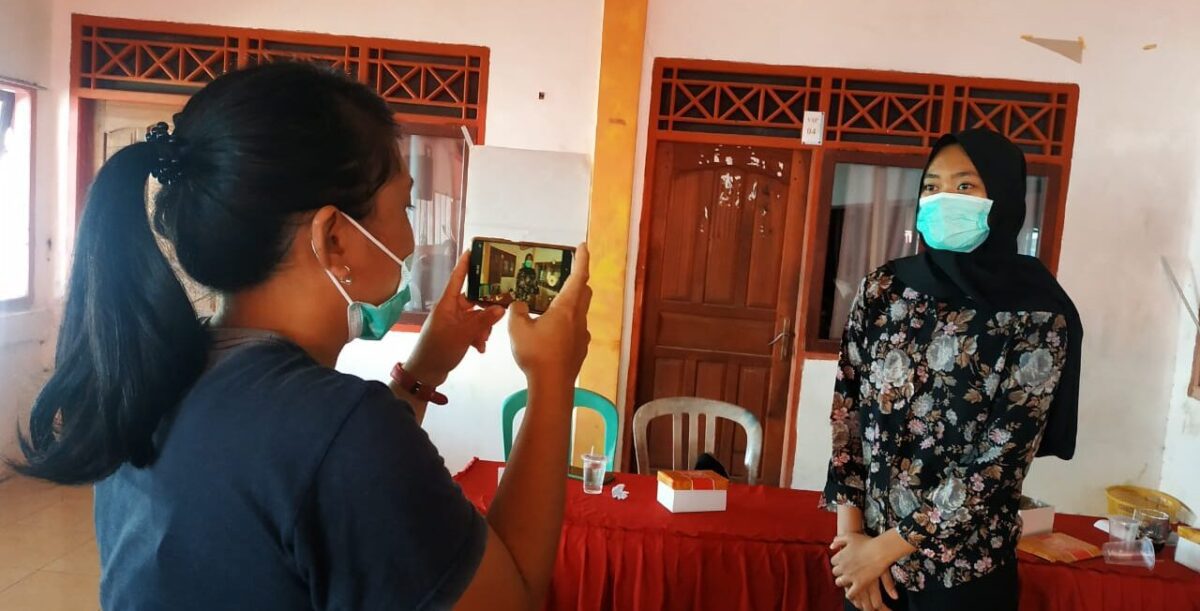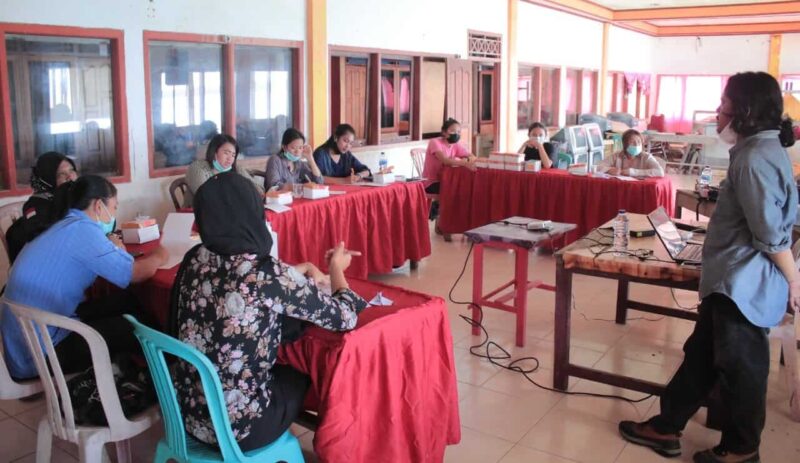Young indigenous women in Mentawai Islands, off the coast of the Indonesian island of Sumatra, are getting a chance to learn how to make journalistic videos that will help them broadcast their concerns about their local environment.
by Rus Akbar Saleleubaja
Nelis Yunisara Samaloisa, 18, was so excited to be given the chance to take part in a journalistic video-making workshop that she left her village of Nemnemleleu in the Mentawai Islands a day earlier than expected to make the 67-kilometer motorcycle ride to Tuapejat, the island’s main town, where the course was held.
Nelis was one of 10 participants selected to take part in the three-day Journalistic Video Training for Indigenous Women in Mentawai, held by the Citra Mandiri Mentawai Foundation (YCMM) in Tuapejat on June 17-19, 2021.
“I want to learn and get new knowledge on how to take video shots, be good at editing them, so that I could later make videos about my village and neighboring ones,” Nelis said during her training.
The nine other participants were all active members of Indigenous communities from various villages in the Mentawai Islands, such as Nemnemleleu, Matobe, Goisok Oinan, Saureinuk, Sipora Jaya, Sidomakmur and from Tuapejat itself.
Pinda Tangkas Simanjuntak, head of the YCMM office in Tuapejat, said the participants were selected based on the recommendations of several communities and partners of the foundation in the Sipora region of Mentawai. These included Pemuda AMAN, the youth wing of the Alliance of Indigenous Peoples of the Archipelago (AMAN), and two community empowerment organizations, the Indonesia Sheep Foundation and Field Bumi Ceria.
“We asked friends of the community and partners to recommend their members to participate in the training,” Pinda said. The criteria for selection included smartphone ability, existing community engagement, active social media usage and availability, he explained.

This training was the fourth in a series of five held by YCMM with the support of Internews’ Earth Journalism Network (EJN) as part of its Asia-Pacific Project. Previous workshops had focused on journalists and other members of Indigenous communities in Padang and Siberut Island.
YCMM initiated the training after realizing that there were so many digital platforms available, including YouTube, Instagram and Facebook, that could be used by communities to share information and educate people about issues including land loss and food security.
“However, in order to make use of these digital platforms, especially in video form, Indigenous communities need to possess the necessary technical capacity to be able to tell their own narratives, on how environmental destruction and climate change are affecting them,” Pinda added.
Participants from all four trainings will produce video stories based on their proposal and will take part in another selection process for the final training, which will focus on video editing.
Aidil Ichlas, the course instructor, said participants are taught how to shoot video, interview sources and edit their footage so that they become capable of producing high-quality content for people to enjoy. Participants are also shown examples of journalistic videos and documentaries.
In addition, they are taught how to sharpen story angles and ideas, identify environmental issues and plan their reporting. They are encouraged to then translate these issues and problems into film scripts to work on in their respective villages.
“The videos they make must have a clear concept, so that the message they want to send is digestible by their audience,” Aidil said. “For example, a message on the importance of food self-sufficiency for Indigenous communities would portray people planting a variety of local crops. They should not merely make videos on people producing sago.”
For Anugrah Putri, a 21-year-old from Matobe, the training has encouraged her to care more for the environment around her.
“After taking part in this training, I have become more motivated to be more daring in interviewing people, rooting out stories from the society. I also feel that I now have a greater sense of care [for what is taking place in the community] than before,” Anugrah said.
Anugrah said she is excited to apply what she learned by documenting the activities of people in her village, “such as the housewives who plant taro and bananas, or their husbands who go fishing, showing the livelihoods here on a daily basis near the forests,” she said.
Meanwhile, Dian Novita, 28, another participant in the training, proudly claims that she is now capable of shooting a video and editing it. “I will create a video about the management of toek [a wood worm endemic to Mentawai], and in the future I will develop and manage a toek farm in Goisok Oinan,” she said.
YCMM Chairman Kortanius Sabeleake, speaking at the workshop’s closing ceremony, shared hope that the Indigenous women of Mentawai will be more empowered and courageous in talking about their environment. “Through this program, I hope that the Mentawai Indigenous people now have the capacity to promote their conditions to outside societies, be that through videos or articles shared through social media,” he said. “I hope that technology can be used to build the capacity and independence of Indigenous people.”
